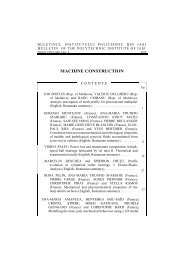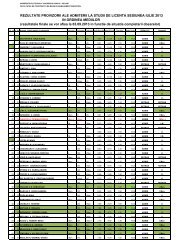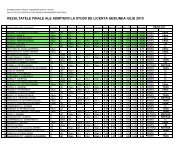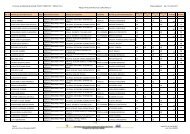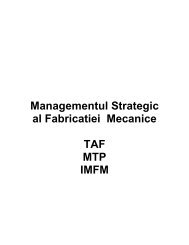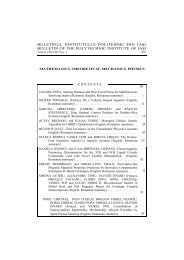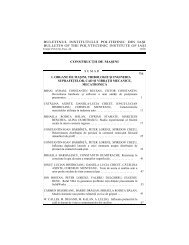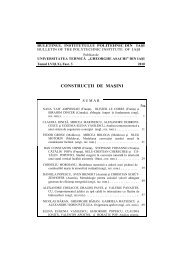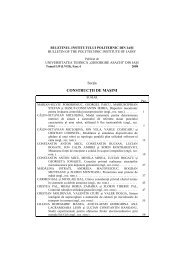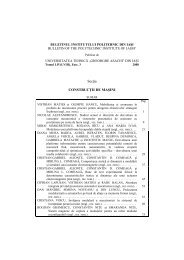C O N T E N T S
C O N T E N T S
C O N T E N T S
- No tags were found...
You also want an ePaper? Increase the reach of your titles
YUMPU automatically turns print PDFs into web optimized ePapers that Google loves.
coefficient of the heat transfer is obtained. The condensation<br />
process enhancement is explained by the combined effect of the<br />
condensate film turbulence and the decrease in the diffusion<br />
resistance of the noncondensable gas layer in an electric field. The<br />
results can be used for design of compact vapour condensers.<br />
Key words: heat transfer, condensation, electric field, noncondensable<br />
gas.<br />
ÉFFICACITÉS ET RENDEMENTS DES SYSTÈMES PILES À<br />
COMBUSTIBLE<br />
par<br />
A. VAUDREY, P. BAUCOUR, F. LANZETTA et R. GLISES<br />
Abstract. Its atypical nature – a "slow" combustion engine<br />
producing electrical work − makes the fuel cell system difficult to<br />
compare to a competing technology solution, consisting for<br />
example of a couple heat engine / electric generator. Its mode of<br />
isothermal operation complicates the comparison of its<br />
effectiveness with that of a normal thermal system operating<br />
between two temperature levels. To overcome this difficulty, we<br />
use equivalence between a fuel cell and an ideal Carnot engine, to<br />
which we add an internal generation of entropy due to electrical<br />
surges characteristic of a real fuel cell. The proposed analogy is<br />
then converted in the exergy model which not only allows a more<br />
meaningful comparison of the fuel cell with alternative energy<br />
solutions, but also a demonstration of its actual energy<br />
performance.<br />
Keywords: fuel cells, efficiency, exergy .<br />
MICROCOGÉNÉRATION : CHOIX DU MOTEUR THERMIQUE<br />
par<br />
PASCAL STOUFFS



